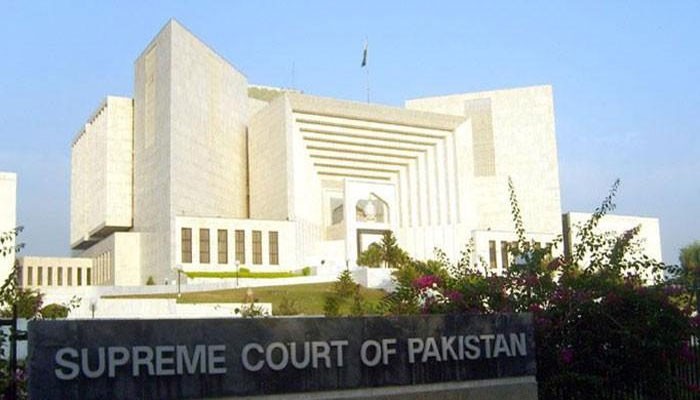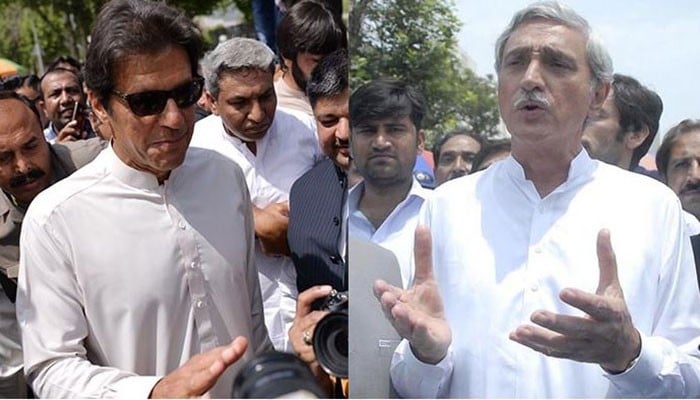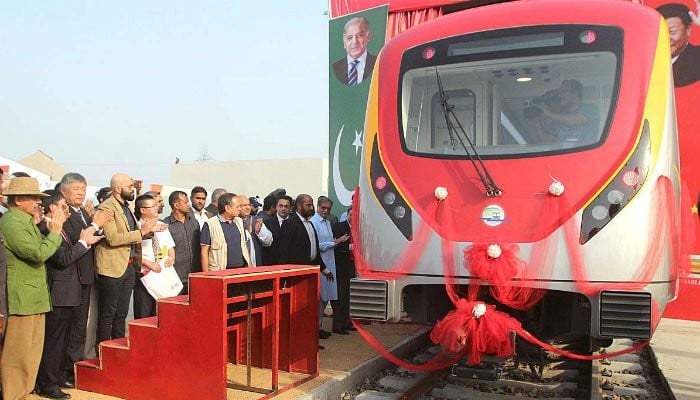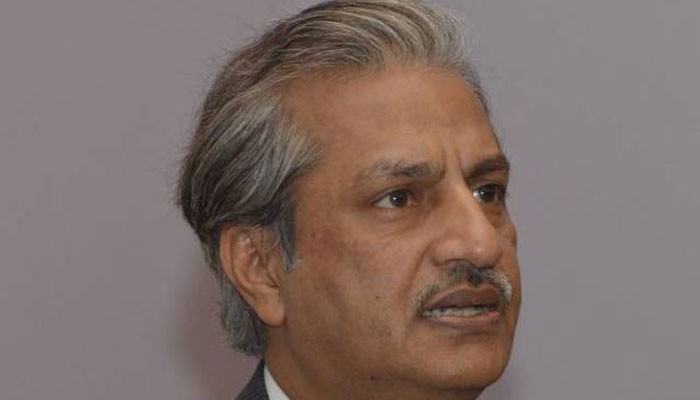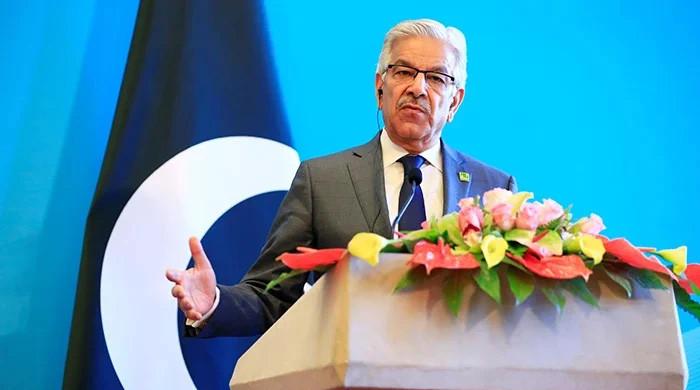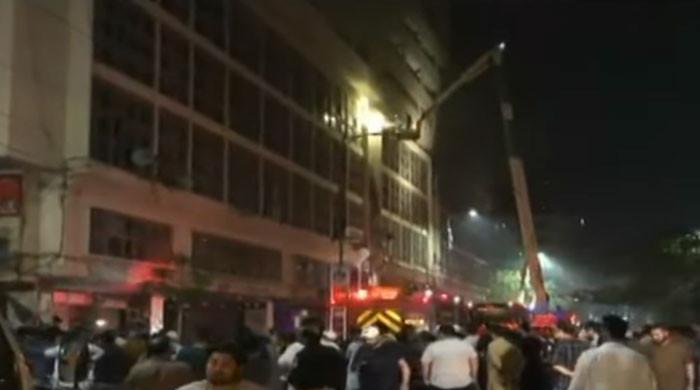Major decisions of the superior judiciary in 2017
'In conclusion, the year 2017 is instrumental for the Supreme Court providing the first real interpretation of Articles 62 and 63 of the Constitution'
January 01, 2018
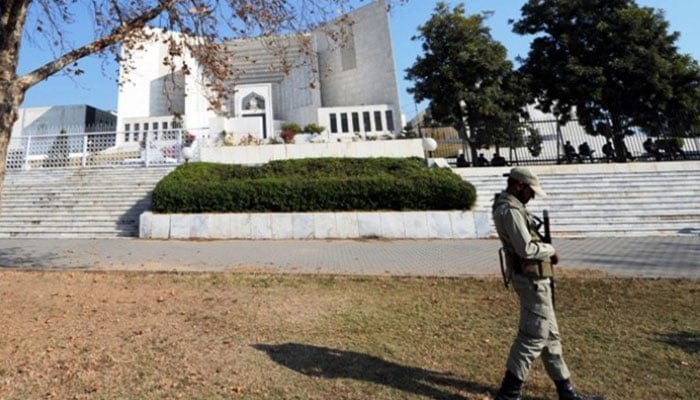
Professor Lon Fuller, the famous legal philosopher, in his essay, The Inner Morality of Law, wrote extensively of the moral dilemma referred to as the “fidelity to law”. It arises when a judge, in interpreting or adjudicating on a difficult or immoral aspect of the law, may sometimes face a conflicting moral duty to do the right thing. This is because the duty to enforce the law and the duty to do the right thing may not necessary intersect (e.g. a conscientious judge in Nazi Germany). What is the judge to do in such a circumstance? Should he or she follow the law, or should he follow his or her conscience?
The superior judiciary of Pakistan, in its evolution, has on numerous times faced Fuller’s problem of the “fidelity to law”. Throughout its history they have authored brave, moral and landmark judgments yet in the same coin, they have also validated military takeovers, performed executive and legislative functions not within their domain and in recent times, actively pursuing a brand of ultra-aggressive judicial activism. A lot has been a consequence of a dysfunctional and inept state, unlawful military adventurism and a legislature more interested in political populism than its primary role of law making. They have thus veered from the boundaries of the interpreters of law to sometimes the makers of law, with varying consequences.
The year 2017, in many ways, has unquestionably propelled the judiciary into the public imagination with the disqualification of a sitting prime minister as not being sadiq and ameen on the touchstone of Article 62 and 63 of the Constitution in the now famous Panama (or the pejoratively titled Iqama judgment, depending on one’s political leanings). 2017 also witnessed the Supreme Court adjudicating on Pakistan Muslim League-Nawaz leader Hanif Abbasi’s petition seeking disqualification of Pakistan Tehreek-e-Insaf’s Imran Khan and Jahangir Tareen as members of the National Assembly for the non-declaration of assets in offshore companies in their nomination papers.
The Panama judgment has gone into folklore not just for the legal reasoning but the age-old debate on the usage of biting prose and poetry in judgments, a practice that is neither unique nor new for the judiciary.
Apart from the above judgments, 2017 was a watershed year for the superior courts adjudicating on critical environmental issues such as prominently the Orange Line Metro Train case. The appointment of Pakistan Electronic Media Regulatory Authority Chairman Absar Alam was also declared illegal and unconstitutional by the Islamabad High Court which actually puts into perspective the issue of prima facie illegal appointments by the state which has led the high courts and the Supreme Court showing various heads of regulatory authorities the door.
Let us now examine the judgments and their legal effects and consequences in detail:
Nawaz Sharif’s disqualification
The disqualification judgments were the most talked about judgments, perhaps in the history of the Supreme Court. It started with a five-member bench constituted by the Supreme Court to hear connected constitutional petitions filed by Imran Khan, Sheikh Rashid and Sirajul Haq. The judges unanimously ordered that Sharif had not correctly disclosed his assets in his tax returns and nomination papers and that, as such, he was not sadiq and ameen in terms of Article 62(1)(f) of the Constitution and the Representation of the People Act 1976. As a consequence, the Supreme Court disqualified Sharif from holding public office. The talking points of the judgment veered from Justice Asif Saeed Khosa’s dissenting note, where Mario Puzo’s Godfather and the French writer Honoré de Balzac were quoted and the Sharif family was equated to the Sicilian Mafia. The prime minister was sent packing on a hyper-technicality, such as not declaring a non-withdrawn salary in his nomination papers.
However, the Panama judgment was more than that, with the judges stressing on “regulatory capture” which is the state (read Nawaz Sharif and family) not allowing independent regulatory bodies such as the National Accountability Bureau (NAB), the Securities & Exchange Commission of Pakistan (SECP) and the State Bank to perform or discharge their duties. The clear evidence was NAB refusing to initiate any proceedings against the prime minister, which forced the Supreme Court’s hand to order references to be filed against Sharif and his family and nominating a sitting judge to oversee the proceedings.
Critics of the judgment pointed this out as the Supreme Court playing judge, jury and executioner as the end result (such as the conviction of Nawaz Sharif), would be a foregone conclusion, as no trial court would give a judgment counter to the observations of the Supreme Court, which has prima facie. Nawaz Sharif obviously did not help his cause in launching a full-blown tirade against the Supreme Court in heated public rallies, complaining of grand conspiracies, which is a euphemism for an establishment/judiciary nexus. In the following months, the court dismissed the review petition filed by Sharif in a scathing and acerbic judgment and called — perhaps for the final time — curtains on his chance on becoming a prime minister again.
The Imran Khan and Jahangir Tareen trial
In the petition against Imran Khan, the Supreme Court, after examining in detail the money trail and the available evidence, impliedly distinguished the case of Imran Khan from Nawaz Sharif insofar that Khan was not a director or shareholder of his off shore company, Niazi Services Limited, and thus was not obligated to disclose the existence of the offshore company in his nomination papers.
Tareen, on the other hand, was declared dishonest under the purview of Article 62 and Article 63 for having a clear beneficial ownership in the offshore company that established the Hyde House property in the United Kingdom. Tellingly, the court did not direct the SECP or NAB to initiate references against Tareen for insider trading and deemed it a past and closed transaction, when it appeared that the SECP appeared to have entered into a settlement with Tareen for the reversal of any alleged ill-gotten profits.
The glaring talking points in both the Sharif and the Tareen judgments were the usage of hyper-technicalities in disqualifying sitting members of the National Assembly. There have been precedents in the past where falsified information filed in nomination papers of election candidates, such as fake academic degrees, have resulted in disqualification, but these judgments are unique, insofar that the Supreme Court has intricately initiated factual inquiries, which is normally the purview of civil/accountability courts.
The train
The Supreme Court, after reserving its judgment for an unusually protracted seven months, allowed the Punjab government to continue its mass transit project — Lahore’s Orange Line Metro Train. Various members of the civil society had challenged in the Lahore High Court the project, initiated in the Punjab capital to counter traffic congestion, as it was deemed a threat to various heritage sites protected under the Antiquities Act of 1975.
The Lahore High Court suspended the operation of the project within 200 metres of the identified heritage sites and the provincial government appealed against this decision to the Supreme Court. The court appointed an independent expert to check the veracity of the reports submitted by the Punjab government on the soundness of the project and the lack of threat to the heritage sites. Thereafter, the independent expert submitted his report and declared that the project would not cause lasting damage to the sites, upon which the Supreme Court allowed the project to continue after placing 31 conditions, which include monitoring vibrations, ensuring the presence of technical experts and reducing the speed of trains near the heritage sites, among others.
This apex court also criticised the Lahore High Court for exceeding its jurisdiction in dismissing the technical feasibility reports filed by the experts, without assigning reasons and declared that superior courts must defer to technical experts’ findings as they do not have any such experience themselves.
Pemra chairman
On Dec 18, the Lahore High Court nullified the appointment of Pemra Chairman Absar Alam on the grounds of a flawed selection process. An advertisement for the post was watered down, according to the ruling, to meet the academic and professional requirements of Alam, who did not possess a postgraduate degree in the fields of business, finance, media or the law.
The Lahore High Court also ruled that Alam was withdrawing a salary far in excess of what was prescribed under the relevant rules formulated and this was a contravention of the criteria prescribed by the Supreme Court in public and regulatory appointments, which require such appointments/advertisements to be “objectively fair” and “transparent” so that the persons appointed can exercise their powers independently and without bias.
Ironically, Alam was himself a petitioner in the Supreme Court judgment of Hamid Mir vs Federation of Pakistan [PLD 2013 SC 244) where he challenged the federal government’s omissions in keeping the Pemra post vacant or appointing temporary incumbents in violation of the rules, a fact that the Lahore High Court alluded to in the judgment repeatedly.
This brings a line of cases where the Supreme Court as well as the high courts have disqualified various heads of state regulatory authorities, including the chairmen of the SECP, OGRA and the Pakistan Telecommunication Authority. One suspects that this will not be the last since such appointments are made inevitably as a consequence of nepotism on part of the state.
In conclusion, the year 2017 is instrumental for the Supreme Court providing the first real interpretation of Articles 62 and 63 of the Constitution, pertaining to the honesty and truthfulness of lawmakers which at best were nebulous and tenuous concepts introduced during the time of dictator Gen (retd) Ziaul Haq. If the precedent is firmly established, it may be now be extensively used to mount pre and post challenges before the Supreme Court. Although, the financial and/or moral integrity of election candidates has been the purview of the election tribunals. It is telling that no such constitutional standard exists for any other public appointments, such as the judiciary and or armed forces, which operate within the purview of the Supreme Judicial Council and the Army Act respectively.
In 2017, more than ever, the scope of Article 184(3) of the Constitution, which allows the Supreme Court to assume original jurisdiction, without the possibility of an appeal, has been the object of criticism and sometimes derision as well.
In fairness to the Supreme Court, the scope of Article 184(3) has been allowed to be expanded by the ineptness of the executive and the neutralisation of regulatory authorities, which usually forces the Supreme Court to assume the role of a legislator, executive as well as an enforcer. The day may not be far where political parties may legislate to reduce or define this scope of Article 184(3) or create an avenue for an appeal. This will obviously require a constitutional amendment, one that may very well be subject to the scrutiny of the Supreme Court itself.
One thing is for certain, 2018 shall be no different for the apex court of Pakistan. There is never a dull day in this country.
Ali is a barrister and a lecturer of law.
Disclaimer: The views and opinions expressed are those of the author and do not necessarily reflect the official policy or position of Geo News or the Jang Group.
